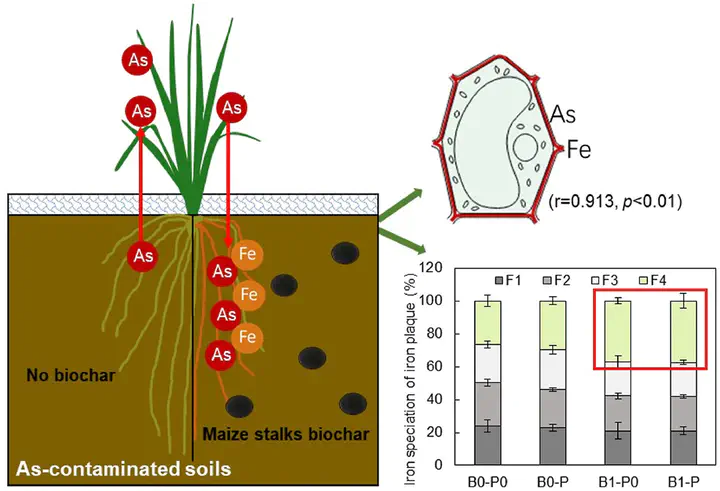Biochar promotes arsenic sequestration on iron plaques and cell walls in rice roots

Abstract
The iron (Fe) cycle in the rice-soil system affects arsenic (As) uptake by rice. The effect of Fe on As uptake can be influenced by the addition of biochar, but has not been thoroughly investigated. In this study, the effects of maize straw-derived biochar (MB) on Fe and As translocation were determined by analysing the Fe and As concentrations in pore water, dithionite-citrate-bicarbonate (DCB) extracts, and rice plants. As-contaminated soils were supplemented with 0 or 1% biochar and 0 or 90 mg kg−1 P, and rice plants were grown for 70 d. Results indicated that biochar addition increased the concentrations of Fe and As in pore water, while P did not affect them. Additionally, biochar promoted the accumulation of Fe and As in roots. However, the rice biomass increased by 28% upon biochar addition, indicating that the rice plants became more tolerant to As toxicity with biochar. Specifically, biochar increased the root triphenyl tetrazolium chloride (TTC) reductive intensity, reduced the root H2O2 concentration, and promoted iron plaque (IP) formation. Moreover, the positive correlation between IP/DCB-extractable As and crystalline Fe on the rice root surface indicated that crystalline Fe appeared to be the determinant species of IP and played a central role in As segregation. In addition, biochar increased both crystalline Fe formation on the root surface and the Fe content in the cell wall, which enhanced As sequestration. Overall, rice could effectively tolerate As stress under biochar treatment since As could be retained on the root surface and root cell wall with MB.